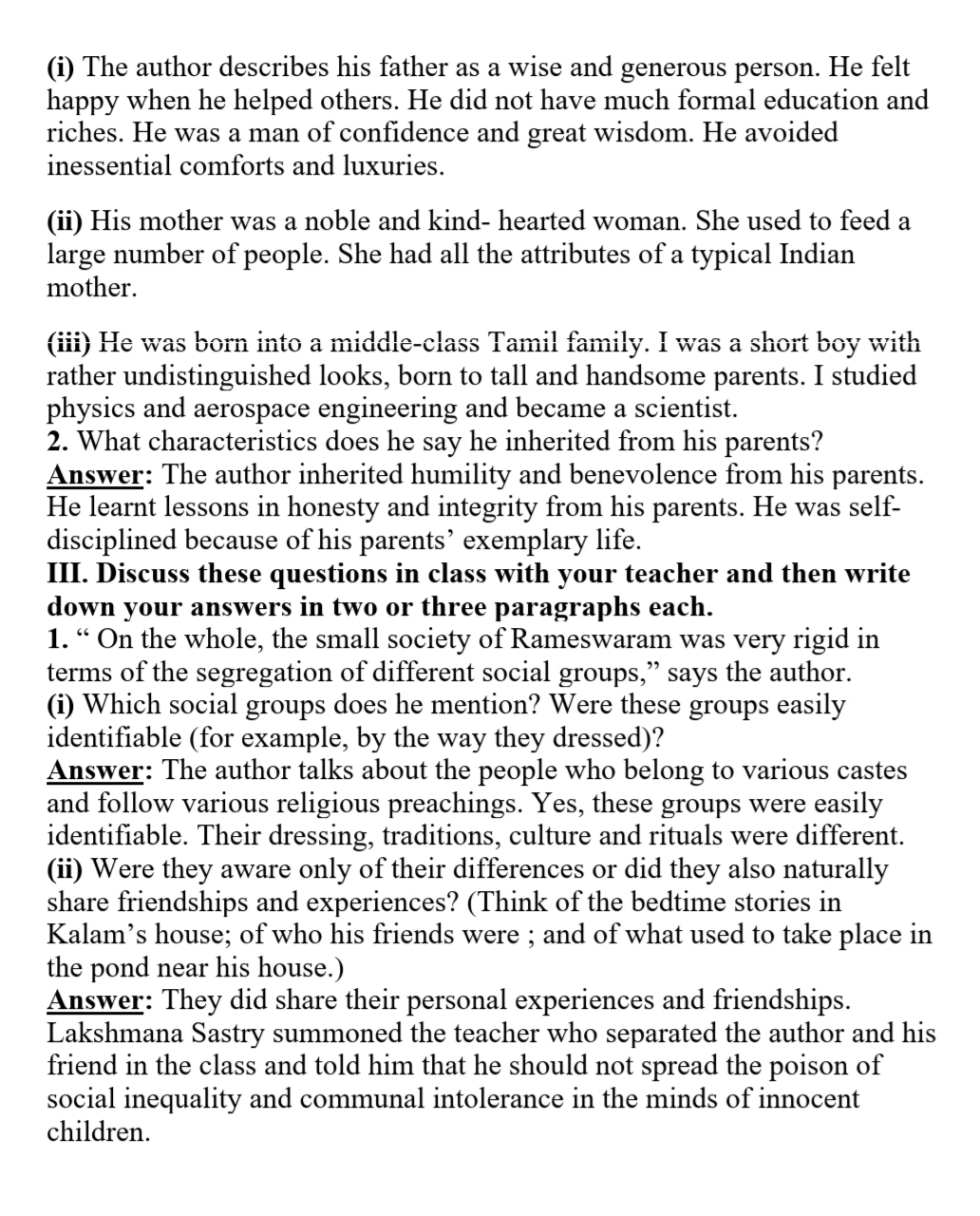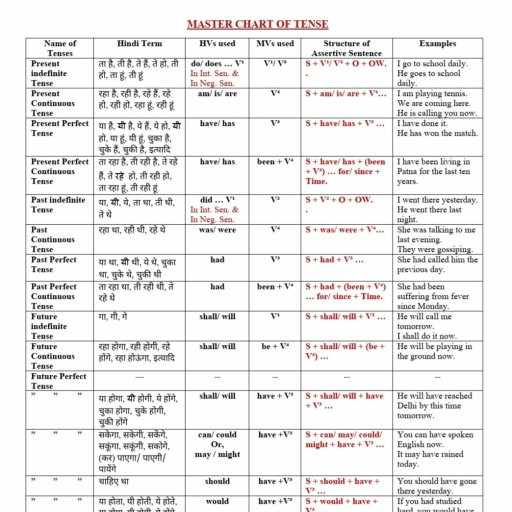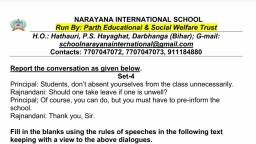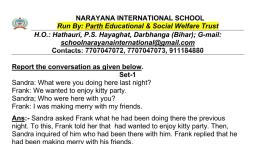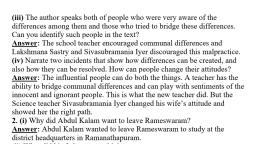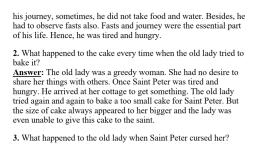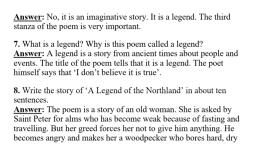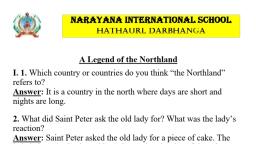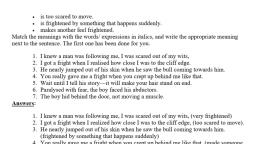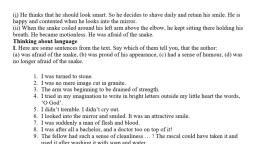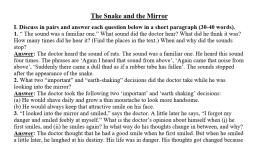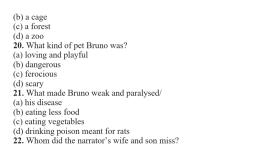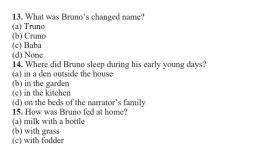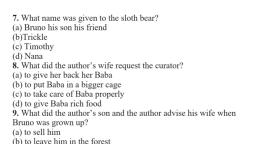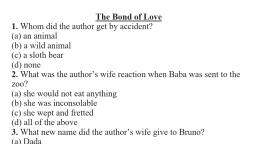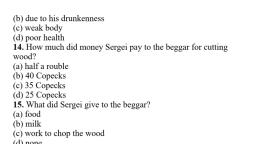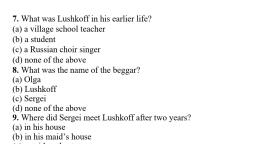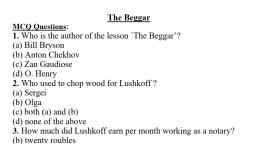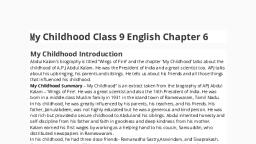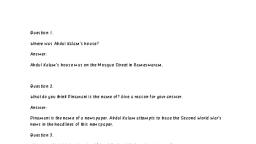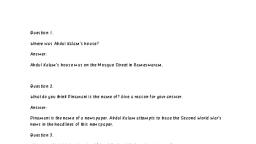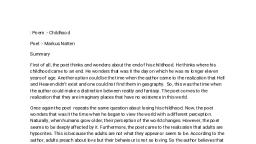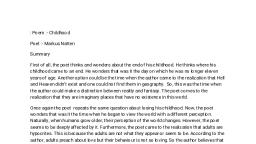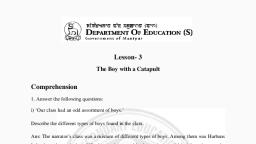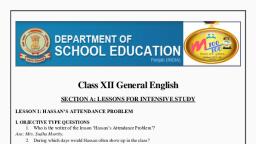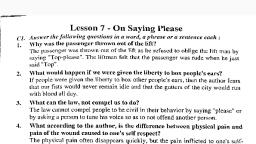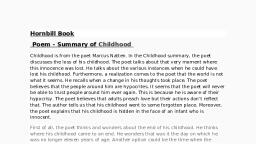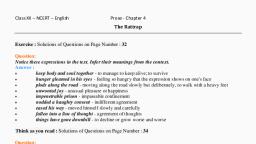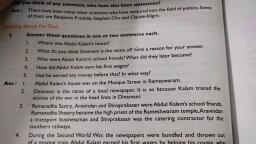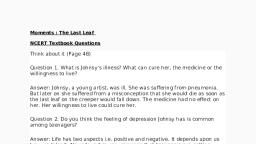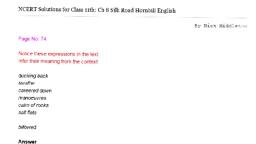Page 1 :
(i) The author describes his father as a wise and generous person. He felt, happy when he helped others. He did not have much formal education and, riches. He was a man of confidence and great wisdom. He avoided, inessential comforts and luxuries., , (ii) His mother was a noble and kind- hearted woman. She used to feed a, large number of people. She had all the attributes of a typical Indian, mother., , Gay Ue was horn inte 3 middleclace Tamil family Tuas a chost bo, Uiliy 6 W4S O07 iNtd 4 Miaaie-ciaSs 1 aii iaMiy. 1 WaS a4 SHOT oO, , L,, rather undistinguished looks, born to tall and handsome parents. I s, physics and aerospace engineering and became a scientist., 2. What characteristics does he say he inherited from his parents?, Answer: The author inherited humility and benevolence from his parents., He learnt lessons in honesty and integrity from his parents. He was selfdisciplined because of his parents’ exemplary life., III. Discuss these questions in class with your teacher and then write, down your answers in two or three paragraphs each., 1. “ On the whole, the small society of Rameswaram was very rigid in, terms of the segregation of different social groups,” says the author., (i) Which social groups does he mention? Were these groups easily, identifiable (for example, by the way they dressed)?, Answer: The author talks about the people who belong to various castes, and follow various religious preachings. Yes, these groups were easily, identifiable. Their dressing, traditions, culture and rituals were different., (ii) Were they aware only of their differences or did they also naturally, share friendships and experiences? (Think of the bedtime stories in, Kalam’s house; of who his friends were ; and of what used to take place in, the pond near his house.), Answer: They did share their personal experiences and friendships., Lakshmana Sastry summoned the teacher who separated the author and his, friend in the class and told him that he should not spread the poison of, social inequality and communal intolerance in the minds of innocent, children., , a, Q., &, o, , Qa.
